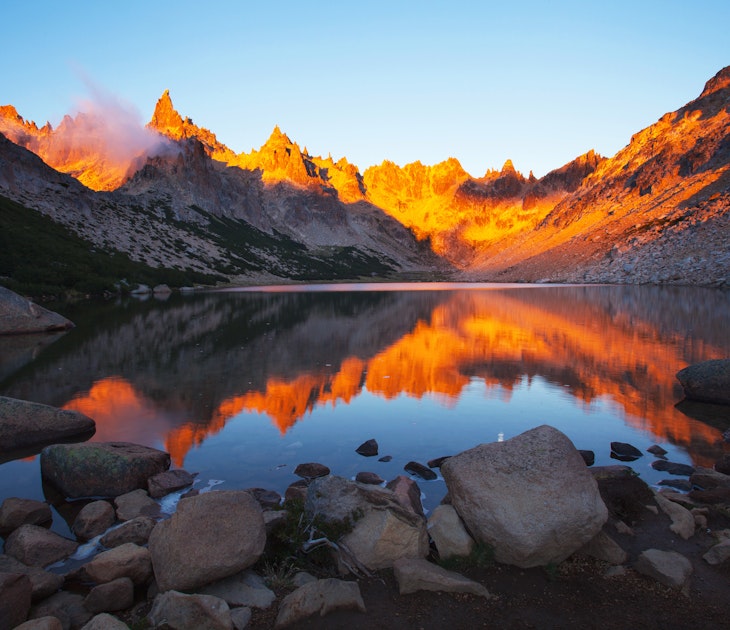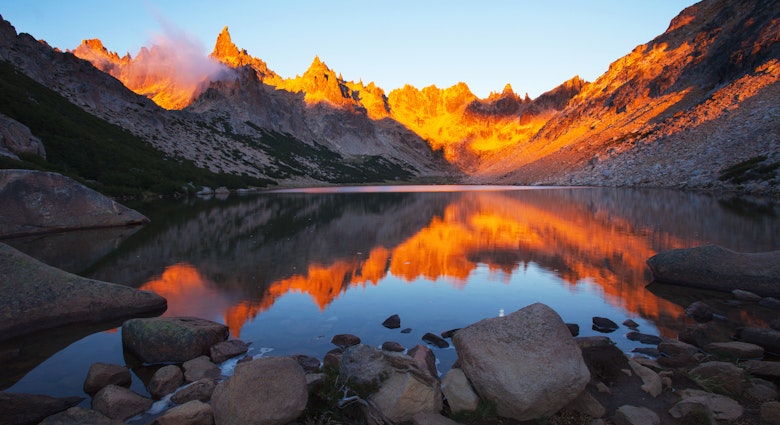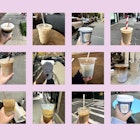The latest wholesome lifestyle trend fresh out of Scandinavia, ‘plogging’ combines environmental work with outdoor exercise. But what is it all about? James Kay dusts off his gym shorts and arms himself with a litter picker to find out.
It’s not a sight I’m usually excited to see: a shopping trolley abandoned in a park. But this one – left by a bench after, I presume, a petty theft from the nearest Tesco – is just what I’m after; a near perfect vessel to transport the increasingly cumbersome produce that has accumulated during my first ever plog.
Plogging – a portmanteau that combines the Swedish plocka (to pick) with jogging – is the latest lifestyle trend dreamed up by the reliably forward-thinking Scandinavians. The idea is simple: when you run (or walk for that matter), take a bag and pick up rubbish along the way. But what is the appeal and why are people around the world doing it?
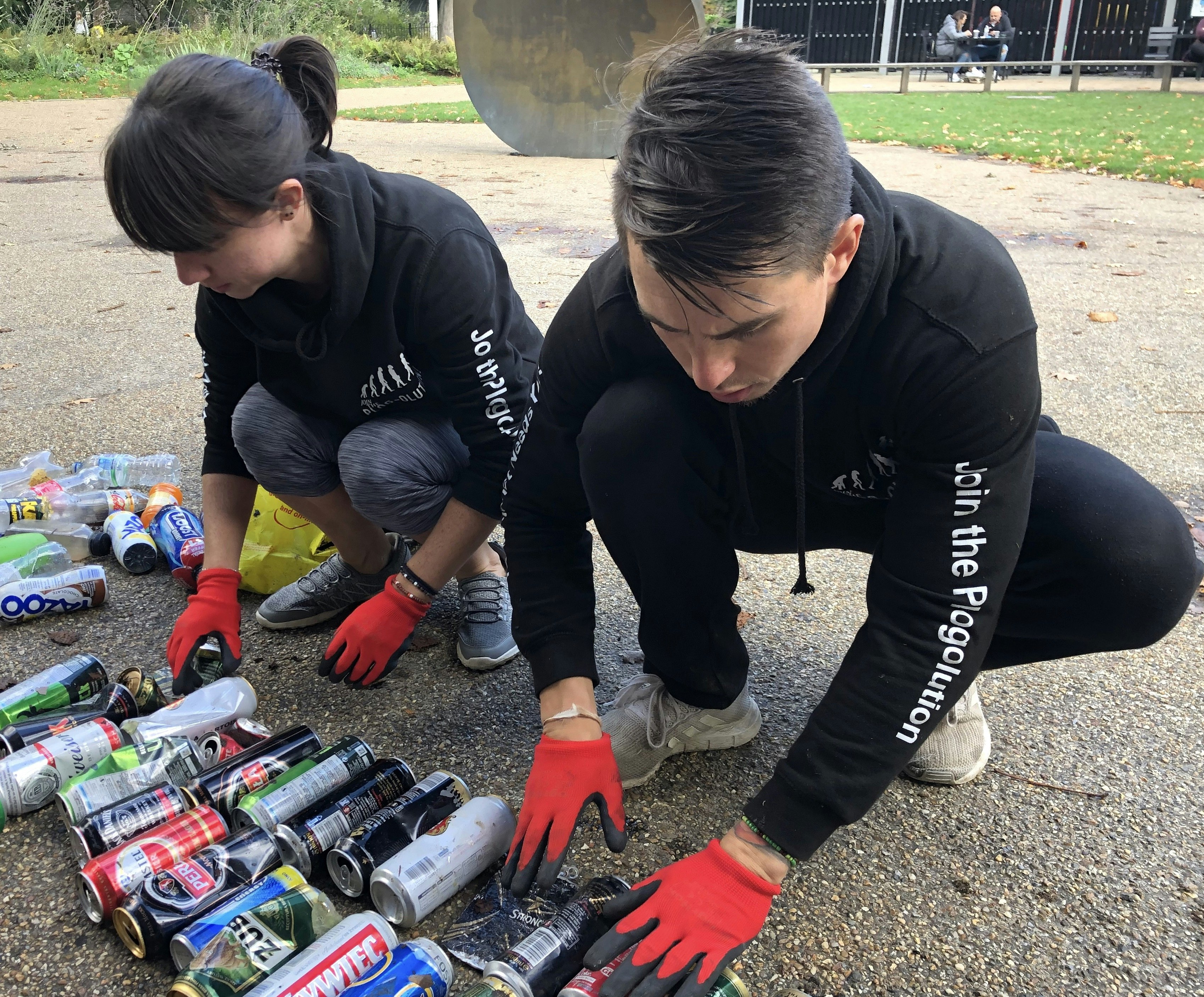
To find answers, I’ve signed up to a plog in the company of Dermot Kavanagh and Phoebe Abrahams, founders of Plogolution – a group of volunteers who organise plogs across London.
Since Dermot and his co-founder Michelle Parkes set up Plogolution in July last year, more than 1200 people have joined over 50 plogs, both in the city and elsewhere, removing tonnes of rubbish from the environment.
As the rain starts to spit in Walpole Park, Ealing, Dermot and Phoebe distribute black bags, protective gloves and litter-pickers to about two dozen public-spirited people, ranging from children to pensioners.
The group, which includes volunteers from the Green S Welfare force, an independent band of do-gooders, splits into two. I join Dermot on a 5km run; everyone else goes with Phoebe on a 2km walk. The pair have done a recce of the park, so they know where to look.
‘This is a clean park, which is something to celebrate – but there’s still rubbish to find,’ says Dermot as he briefs us on what to tackle and what to avoid, before concluding: ‘We’re all here to enjoy ourselves and make the planet a better place.’
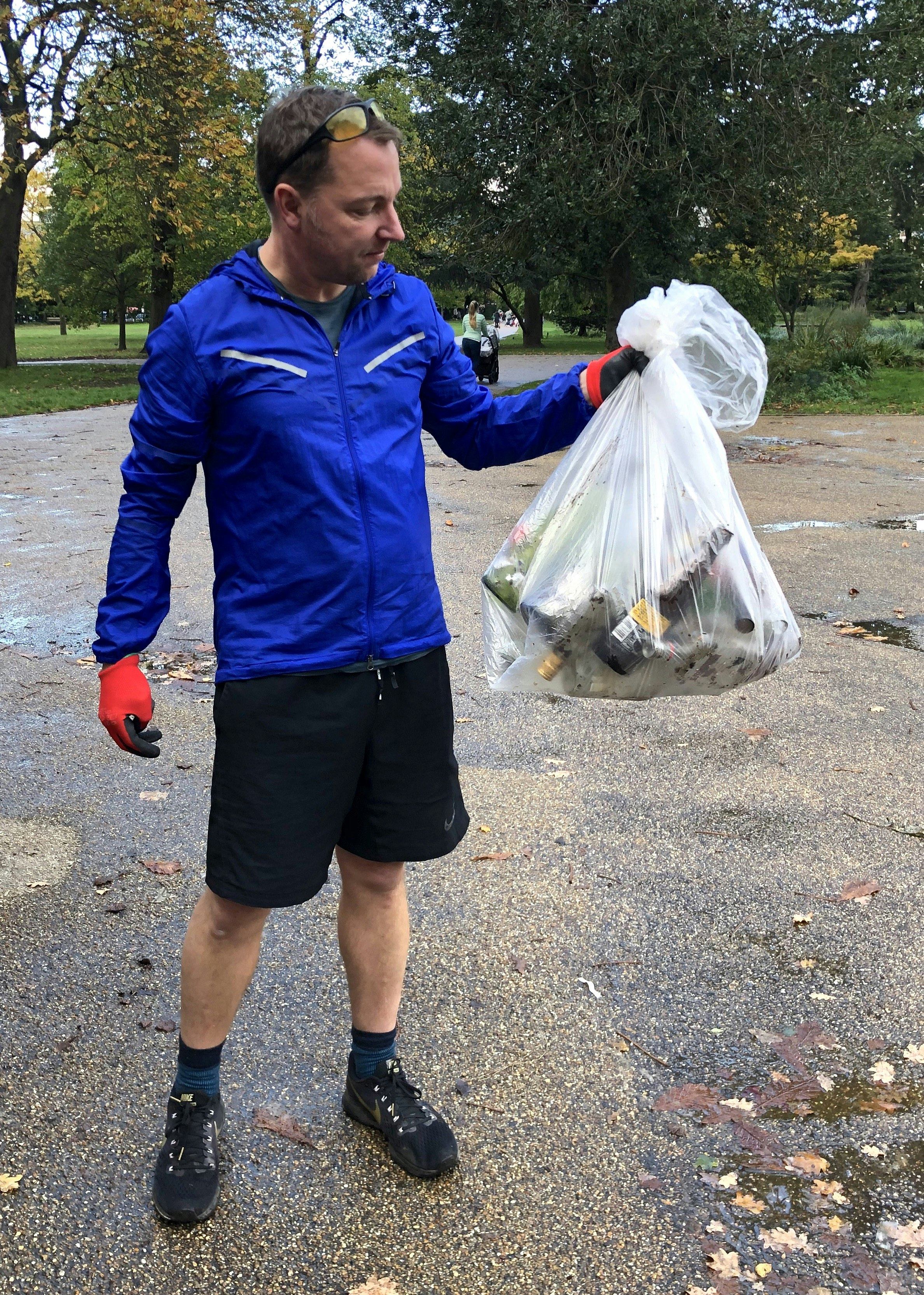
Dermot and I set off around the perimeter as the walkers do a sweep of the footpaths. In five minutes, we have filled the first few bags with single-use plastic, sweet wrappers, cigarette packets, crushed cans and far less pleasant detritus. By the halfway point, we have more than we can carry. Then we find the serendipitous trolley.
The stop-start nature of plogging makes it a different workout from a normal run. Bending down to scoop up a stray crisp packet when you’re in motion incorporates a series of squats into your routine; before long, a sheen of sweat forms on my brow, confirmation of those burning calories.
Plogging triggers contradictory emotions too: on the one hand, the exercise promotes the release of endorphins, feel-good chemicals that lift your mood. And then there is the sense of satisfaction that comes from doing something worthwhile.
On the other hand, it’s anything but uplifting to see the degree to which we’re contaminating the natural environment, especially if you’re a city dweller who has become subconsciously blind to the trash they pass on a daily basis.
The areas around benches are particularly wretched – a grim constellation of beer cans and vodka bottles. Elsewhere, in the undergrowth around the park’s edge, we find patches of ground strewn with needles and condoms, evidence of how littering is sometimes linked to deeper social problems.

Organisations like Keep Britain Tidy, Keep America Beautiful, Clean Up Australia and many more have organised litter-picking walks for many years. But plogging puts a new slant on an old idea, and it’s caught people’s imagination worldwide, from Costa Rica to Bali, and Finland to Malaysia.
Its ‘inventor’, Erik Ahlström, came up with the concept on his commute after noticing how dirty Stockholm had become. After starting to plog, Erik created a website, and then a not-for-profit organisation, Plogga, whose vision of a rubbish-free world gained traction in Sweden and beyond.
‘During my daily cycling trip I was shocked by the amount of junk there was in nature,’ he says. ‘The same debris could remain in the road for several weeks, so I started picking it up. It felt good in the heart to clean up a small place.’
Pushing our overflowing trolley back to the starting point, Dermot and I pass a family who break into spontaneous applause at our efforts. Sorting through the stinking haul in our bags is unpleasant, but the result is impressive: in less than an hour in this relatively clean park, we have collected more than a dozen bags.
Aside from the laudable main objective of plogging, there is another aspect that might interest responsible travellers who want to get under the skin of a destination: it builds relationships and nurtures community.
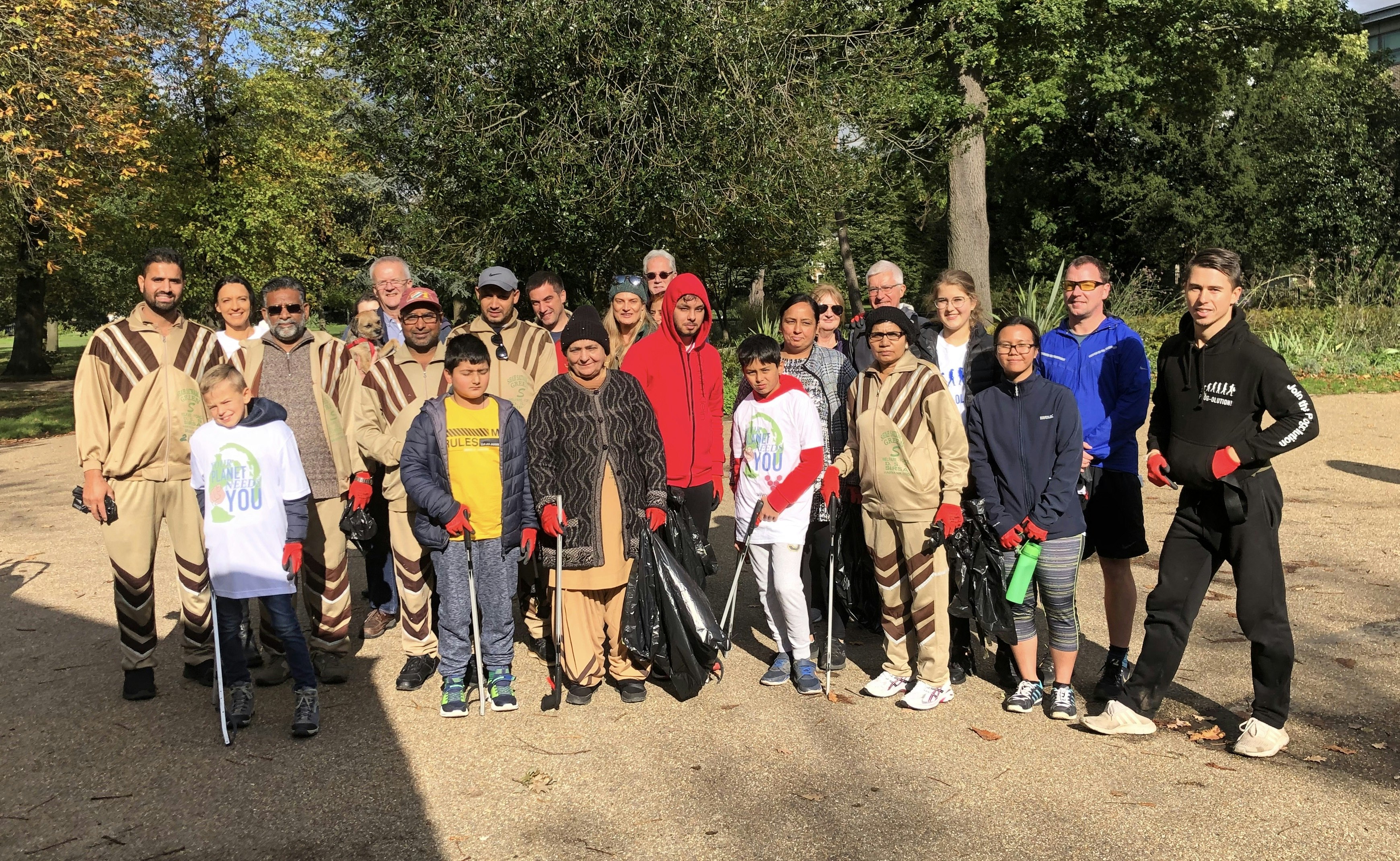
‘When I first started plogging, the idea of talking to complete strangers was a barrier,’ says Phoebe. ‘But aside from improving the environment, that’s become one of my favourite parts of it; we’ve had two- and three-year-old children putting rubbish into a bag held by an 89-year-old walking with a zimmer frame. There are zero barriers.’
As if to prove the point, after we’ve sorted everything into piles for the council to collect, the sub-group from the Green ‘S’ Welfare force hand out plates of chickpea curry and cups of masala chai, which we consume together under the bandstand as the rain intensifies.
The gesture – and the event – brings to mind the words of the great American cultural anthropologist Margaret Mead, who once said: ‘Never doubt that a small group of thoughtful, committed citizens can change the world; indeed, it's the only thing that ever has.’
So, if you’re interested in improving your fitness at the same time as cleaning up the world, albeit one crisp packet at a time, you know what to do, folks: plog on.
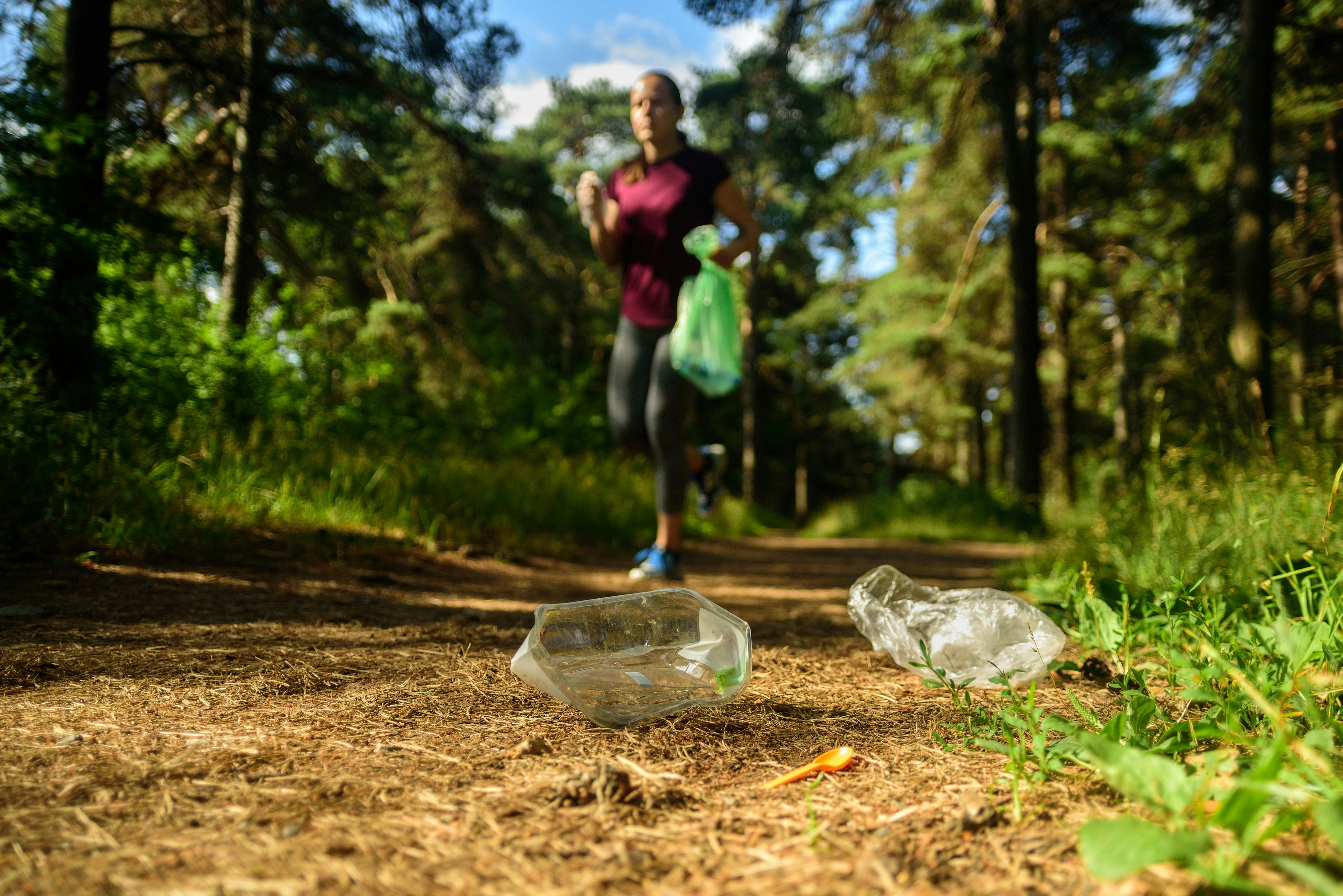
Where can I plog?
In short: anywhere. Part of plogging’s appeal is its inclusivity; informal groups are springing up all over the place. If you’re interested in joining an organised plog during your travels, start by searching social media channels like Twitter and Instagram for the hashtags #Plogga and #Plogging (Instagram alone has more than 60,000 photos of people plogging around the globe, spanning everywhere from Seoul to India to Brazil).

